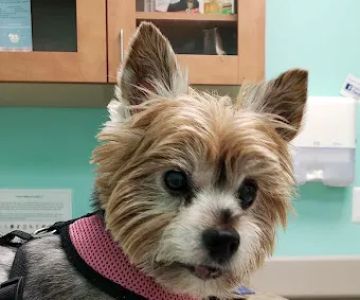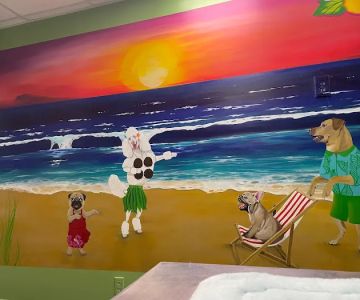What Is the Job of a Veterinarian?
Veterinarians are healthcare professionals who specialize in the diagnosis, treatment, and prevention of diseases in animals. The role of a veterinarian goes beyond simply treating pets; they play a critical part in public health, ensuring the safety of the food supply, and contributing to wildlife conservation efforts. In this article, we will dive deep into the various responsibilities and tasks that a veterinarian handles, what their typical day looks like, and how one can pursue a career in this field.
The Daily Tasks of a Veterinarian
Being a veterinarian involves much more than just performing check-ups and administering medications. A typical day for a vet can include a variety of tasks, from diagnosing conditions in animals to performing surgeries. Many veterinarians work in clinics, but they can also be found in research labs, zoos, or even traveling to remote locations to treat animals in the wild. Their daily work involves a mixture of medical expertise, animal care, and client communication.
Diagnosis and Treatment
The most common aspect of a veterinarian’s job is diagnosing and treating sick or injured animals. This may involve conducting physical exams, ordering laboratory tests, and interpreting X-rays or bloodwork results. Vets must be highly skilled at recognizing signs of disease in animals that cannot verbally communicate their symptoms. For example, a veterinarian may need to identify subtle signs of a viral infection in a dog, which could require specialized medical treatment and medications.
Surgical Procedures
Veterinarians are often required to perform surgeries, from routine spaying or neutering to more complex operations like tumor removals or orthopedic surgeries. They must be well-trained in surgical techniques and prepared to deal with any complications that may arise during procedures. The job requires a steady hand, quick thinking, and the ability to stay calm under pressure, as surgeries often involve a high level of risk for both the animal and the veterinarian.
Preventive Care
Prevention is one of the most important aspects of veterinary care. Veterinarians provide preventive care, including vaccinations, parasite control, and dental check-ups. These routine visits help to ensure that animals stay healthy and free from diseases. For instance, veterinarians may recommend regular vaccination schedules for pets to protect them from common but serious diseases such as rabies or parvovirus.
Client Communication and Education
In addition to treating animals, veterinarians spend a significant amount of time communicating with pet owners. This includes explaining diagnoses, discussing treatment options, and providing advice on caring for animals at home. Many veterinary professionals work closely with pet owners to develop long-term health strategies for their pets, such as weight management, exercise plans, and proper nutrition.
Becoming a Veterinarian
Becoming a veterinarian requires a significant amount of education and training. Most veterinarians hold a Doctor of Veterinary Medicine (DVM) degree, which typically requires completing a four-year undergraduate program followed by a four-year veterinary school. After graduating, veterinarians must pass exams and may choose to specialize in certain fields, such as surgery, dentistry, or dermatology. The path to becoming a veterinarian is challenging but rewarding, with many career opportunities available in both private practice and public health sectors.
The Importance of Veterinarians in Society
Veterinarians play a crucial role in society beyond treating pets. They contribute to public health by ensuring the safety of food animals, monitoring zoonotic diseases, and responding to outbreaks of infectious diseases that can affect both animals and humans. Additionally, veterinarians working in wildlife conservation help to protect endangered species and maintain biodiversity. Their work can have a profound impact on both animal and human health, making it an incredibly important and fulfilling career choice.
Veterinarians in Public Health
Public health veterinarians work in government agencies or international organizations to monitor and control diseases that can spread between animals and humans. Their work helps to prevent pandemics and other health crises. One example is the role of veterinarians in controlling the spread of zoonotic diseases like avian flu or mad cow disease, which can have devastating effects on human populations if not managed properly.
Conclusion: The Rewards of Being a Veterinarian
Being a veterinarian is a highly rewarding profession that combines a passion for animals with the opportunity to make a significant difference in the world. Whether you're diagnosing illnesses, performing life-saving surgeries, or educating pet owners on preventive care, veterinarians contribute to the health and well-being of both animals and humans. If you're considering becoming a veterinarian, it's important to understand the commitment and education required, but also the incredible rewards that come with a career dedicated to improving the lives of animals and people alike.
To learn more about becoming a veterinarian or to find a trusted vet for your pets, visit our website for expert advice and resources on veterinary care.











